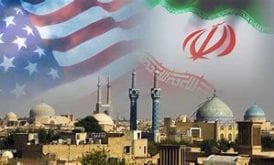iranintl – Conflicting reports about the removal of Iran’s Chamber of Commerce chairman indicate a push by hardliners to take control of the country’s private sector.
On Monday, state media reported that the head of the country’s Chamber of Commerce has been sacked after over four months of contentious relations with the hardliners in President Ebrahim Raisi’s administration, who rejoiced the development on social media. On Tuesday, the report was dismissed by the incumbent chairman himself, Hossein Salahvarzi, whose election in June was a manifestation of the growing divide between the hardliners and the businesspeople.
A large chunk of Iran’s economy is controlled by the government and quasi-state foundations, where hardliners have a strong presence as managers with conflicting private interests.
The chamber is often referred to as the “private sector’s parliament” with over 400 members. The chairman’s role is coordinating between the private sector and government and is sometimes required to participate in meetings with government officials. However, due to Salahvarzi’s critical views about the government’s policies and performance, he was shunned by the administration and was never invited to any of meetings during the past four months, practically sidelining the private sector. The government also froze all its dealings with the chamber to force Salahvarzi out, and even published several fake news about his resignation during the past several months.
Although he won the election fair and square, obtaining 265 votes against 95 votes for Younes Zhaeleh, — known to have close ties with the government — the hardliners claim he was disqualified from running in the election by Iran’s Intelligence Ministry. However, the country’s judiciary approved the results of the election, and the parliament did not contest the results, and even the president himself only called for clarification on the issue.
Members of the chamber who are usually private businessmen have often criticized regime policies that have led to an economic crisis, including a confrontational foreign policy. The chambers often produce economic reports that the government finds embarrassing, or they criticize proposed budget bills and other plans.
The real development that occurred Monday was a session of a regulatory board of the chamber, which ended without any agreement, according to Salahvarzi’s post on X social media platform (formerly twitter).
Ali Shariati, a member of the chamber, described the media stunt about removal of Salahvarzi as “a coup against Minister of Industry, Mine, and Trade Abbas Aliabadi,” who holds the position since June. He claimed that the move was orchestrated by members of Iran’s ultra-hardliner Paydari (Steadfastness) Party, as a psychological operation to put pressure on Aliabadi, who does not belong to the group, but oversees the chamber. The party has its tentacles in all government institutions including the parliament where their members form a very influential minority that often takes a leading role amid the weak presence of established conservative and reformist parties. Shariati says the private sector will not allow the hardliners to engineer the elections and suppress the rule of law.
Hossein Marouf, another member of the chamber, told FarazDaily that chambers of commerce are advocacy organizations, explaining that the head of chambers should be part of the top-level government decision making and represent the private sector’s demands. “When the government boycotts the chamber’s chairman and doesn’t allow him to participate in meetings, there is no chance to effectively pursue demands.”
In the meantime, there is more bad economic news for the government. New reports indicate that the regime is not gaining revenues from its oil exports as much as it advertises, and its budget deficit will be twice as worse as that of the current year. The regime has reasons to muddy the data on its sanctions-hit income, but the parallel systems it has created during the years to circumvent international checks and balances have come back to bite its struggling economy.
Economist Mohammad Gholi Yousefi says Iran needs comprehensive economic reform to eliminate parallel institutions, allowing the private sector to have room for growth. He rejected the common belief that Iran’s economy will flourish if sanctions are removed, saying, “The problem is that we have a big government that intervenes in all affairs, disrupts the economic system, restricts the private sector, and even interferes in people’s private lives. To achieve this significant change, amending the constitution is essential.”
Referring to another common belief that Iran’s accession to the Financial Action Task Force (FATF) will lift up the economy, he said, “So long as the constitution remains unamended and individual, social, and economic freedom are not seriously exercised, the lifting of sanctions and international agreements will not significantly contribute to the recovery of the economy.”
 Shabtabnews In this dark night, I have lost my way – Arise from a corner, oh you the star of guidance.
Shabtabnews In this dark night, I have lost my way – Arise from a corner, oh you the star of guidance.



